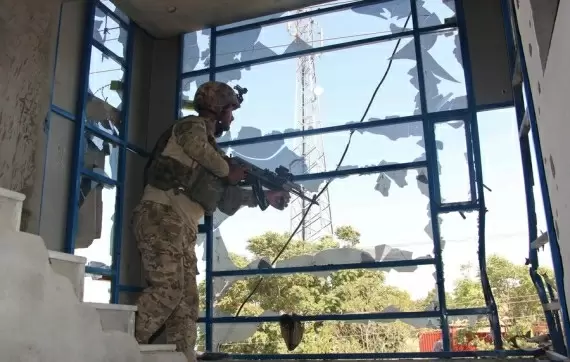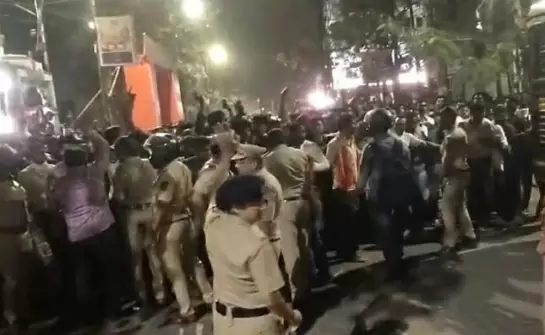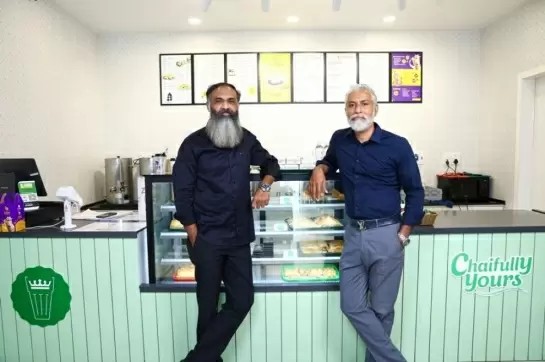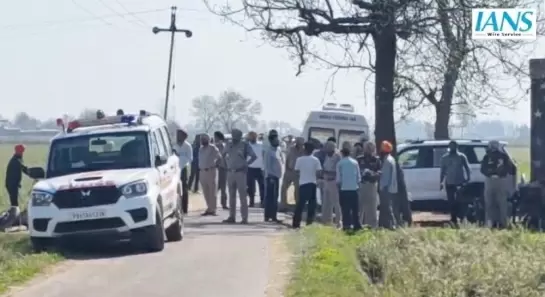First six months of 2021, Afghanistan's bloodiest since 2009
New Delhi/Kabul
08-August-2021

Photo:IANS
In a briefing to the UN Security Council (UNSC), Shaharzad Akbar, Chairperson for the Afghanistan Independent Human Rights Commission, said that the first six months of this year has been the bloodiest for the war-torn country since 2009, with at least
"If the current rates of violence continue, I am heartbroken to note that there might be a grim new record of civilian harm by end of this year. With districts and now a provincial city falling to the Taliban, millions of Afghans are waiting in terror to see what comes next," Akbar told the UNSC.
"This Council and its members still have the leverage to stop the bleeding of Afghans and prevent catastrophes. This Council can save lives. We will need the council to utilise the full range of political, diplomatic, human rights and humanitarian tools and interventions to save lives and prevent further and more horrific atrocities.
"We urge the Council, the UN and international human rights mechanisms to respond with a greater sense of urgency to the Afghan calls for civilian protection, ceasefire, an end to violence and meaningful and inclusive political process.
"Women in particular remember the past and present abuses of the Taliban against their freedoms and their persons, and dread what is to come. As you know, many are joining the ranks of those trying to flee this worsening storm," he added.
In Spin Boldak, Kandahar, the Commission's findings confirm that the Taliban dragged out and killed at least 40 civilians associated with the government, in a campaign of targeted, extrajudicial killings.
Watch This TWL Video
Following media and human rights reporting, Taliban imposed strict restrictions and would investigate people travelling to and from Spin Boldak to prevent full documentation of these atrocities.
In Malistan, Ghazni province, the commission confirmed that at least 27 civilians were murdered in targeted killings by the Taliban.
In one instance, Taliban sought the help of an unarmed guard to move the bodies of civilians and then killed the guard in an attempt to eliminate witnesses.
In Helmand, residents of the provincial capital of Lashkar Gah are stuck between Taliban attacks and government airstrikes, fearing for their lives every minute and deprived of access to their basic rights.
In addition to daily violations of the laws of conflict, Afghanistan's human rights gains is under attack and rapidly shrinking as the conflict expands.
One major, deeply concerning example is the rights of women and girls in areas captured by the Taliban, Akbar said while briefing the Council.
"Women's access to education, to markets, to basic health services is limited and shrinking. Their basic human rights denied and repressed. Afghan women across Afghanistan are either reliving the nightmare of Taliban area or live in the fear and trauma of reliving it soon, if the tide doesn't turn and we don't have an opportunity at negotiations and meaningful participation in them.
"We have an equally concerning situation with access to information and freedom of expression. As media are under pressure by both sides to the conflict, independent media in different provinces are shutting down as more districts fall to Taliban," he added.-IANS
More Headlines
Haryana BJP Leader Shot Dead Over Land Dispute On Holi: Police
Mumbai Police Bust High-Profile Sex Racket in Hiranandani Hotel
NPG Evaluates 8 Key Infrastructure Projects Under PM GatiShakti Plan
Rupee Symbol Debate Heats Up as Tamil Nadu Opts for ‘ரூ’
AIADMK Walks Out, BJP Boycotts Tamil Nadu Budget Session
Haryana BJP Leader Shot Dead Over Land Dispute On Holi: Police
Mumbai Police Bust High-Profile Sex Racket in Hiranandani Hotel
NPG Evaluates 8 Key Infrastructure Projects Under PM GatiShakti Plan
Rupee Symbol Debate Heats Up as Tamil Nadu Opts for ‘ரூ’
AIADMK Walks Out, BJP Boycotts Tamil Nadu Budget Session










